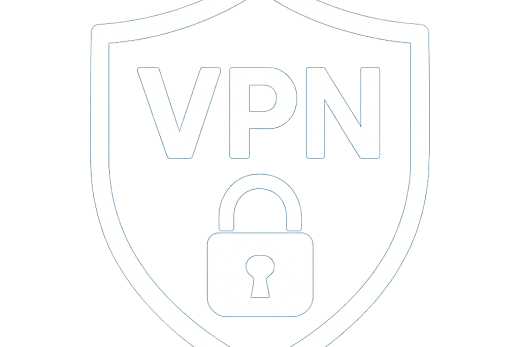OpenVPN: The Trusted Standard for Secure Remote Access
In the world of Virtual Private Networks (VPNs), where robust security and wide compatibility are paramount, OpenVPN has long stood as a venerable and highly trusted protocol. For years, it has been the go-to choice for individuals and organizations seeking to establish secure, encrypted connections over the internet, serving as the backbone for countless commercial VPN services and enterprise networks.
What is OpenVPN?
OpenVPN is an open-source VPN protocol that leverages SSL/TLS (Secure Sockets Layer/Transport Layer Security) for encryption and authentication. Unlike some other VPN protocols that are built into operating systems, OpenVPN is a standalone application that operates in the user space (though it interacts with the kernel for network functions).
Its open-source nature is a critical aspect: the code is publicly available for anyone to inspect, audit, and improve. This transparency contributes significantly to its reputation for security and reliability, as vulnerabilities can be quickly identified and patched by a global community of developers.
Key Features and Why It’s Trusted
OpenVPN’s enduring popularity stems from a combination of robust features and design philosophies:
1. Strong Encryption and Security
- SSL/TLS Handshake: OpenVPN utilizes the OpenSSL library, implementing strong cryptographic algorithms like AES-256 (Advanced Encryption Standard with a 256-bit key), widely considered uncrackable by brute force with current technology.
- Flexible Authentication: It supports various authentication methods, including pre-shared keys, username/password, and more commonly, digital certificates (PKI – Public Key Infrastructure). Certificate-based authentication offers a very high level of security, ensuring that only authenticated clients and servers can establish a connection.
- Perfect Forward Secrecy (PFS): OpenVPN can be configured to use PFS, meaning that even if a session key is compromised in the future, past communications remain secure because new, unique keys are generated for each session.
- Resistance to Censorship and DPI: Because it can run over standard TCP (Transmission Control Protocol) port 443 (the same port used by HTTPS web traffic), OpenVPN traffic can often blend in with regular secure web Browse. This makes it difficult for firewalls and Deep Packet Inspection (DPI) systems to detect and block, an invaluable feature for bypassing censorship in restrictive environments.
2. Cross-Platform Compatibility
OpenVPN clients are available for virtually every major operating system and device:
- Desktop: Windows, macOS, Linux
- Mobile: Android, iOS
- Routers: Many custom router firmwares (like DD-WRT, OpenWrt) support OpenVPN.
- Other Devices: NAS devices, Raspberry Pis, etc.
This widespread compatibility ensures that users can secure all their devices with a consistent VPN solution.
3. Flexibility and Configurability
OpenVPN offers an unparalleled level of customization. Network administrators can fine-tune nearly every aspect of the VPN connection, including:
- Choice of Protocols: It can run over both TCP (reliable, but potentially slower due to retransmissions) and UDP (User Datagram Protocol) (faster, less overhead, preferred for most VPN uses like streaming and gaming).
- Port Selection: Users can change the port it operates on, further aiding in bypassing firewalls.
- Compression: Options to compress data for better throughput.
- Advanced Networking: Support for complex network setups, routing, and access control.
This flexibility makes it highly adaptable to a wide range of use cases, from simple personal VPN connections to complex enterprise network architectures.
4. Strong Community and Auditing
As an open-source project, OpenVPN benefits from continuous review and development by a global community of security experts and developers. This constant scrutiny helps identify and fix potential vulnerabilities quickly, contributing to its robust security posture.
OpenVPN in Action: Common Use Cases
- Commercial VPN Services: The vast majority of reputable commercial VPN providers offer OpenVPN as a primary protocol option due to its security, reliability, and ability to bypass restrictions.
- Enterprise Remote Access: Businesses frequently use OpenVPN to allow employees to securely connect to their corporate networks from remote locations, ensuring data privacy and integrity.
- Secure Home Networks: Tech-savvy users can set up OpenVPN servers on their home routers or Raspberry Pis to create a secure tunnel back to their home network, allowing them to access local devices and services securely from anywhere.
- Circumventing Censorship: Its ability to disguise traffic as regular HTTPS makes it effective in countries with strict internet censorship.
OpenVPN vs. Newer Protocols (like WireGuard)
While OpenVPN remains a stalwart, newer protocols like WireGuard have emerged offering potentially higher speeds and simpler codebases. However, OpenVPN still holds its own for several reasons:
- Maturity and Battle-Tested Status: OpenVPN has been rigorously tested and widely deployed for over two decades, making its security and stability exceptionally well-proven.
- Extensive Features: Its configurability allows for highly specialized and complex deployments that newer, simpler protocols might not yet fully support.
- Wider Compatibility: Its long-standing presence means it’s natively supported or easily integrated across a broader range of older hardware and software.
Many VPN providers now offer both OpenVPN and WireGuard, allowing users to choose based on their priorities: OpenVPN for maximum security and flexibility, or WireGuard for raw speed and simplicity.
Conclusion
OpenVPN’s legacy as a secure, reliable, and highly flexible VPN protocol is undeniable. Its open-source nature, coupled with robust encryption and widespread compatibility, has made it a cornerstone of online privacy and security for individuals and organizations alike. While the VPN landscape continues to evolve with promising new technologies, OpenVPN remains a powerful and trusted choice for building and maintaining secure connections in our increasingly interconnected world.




